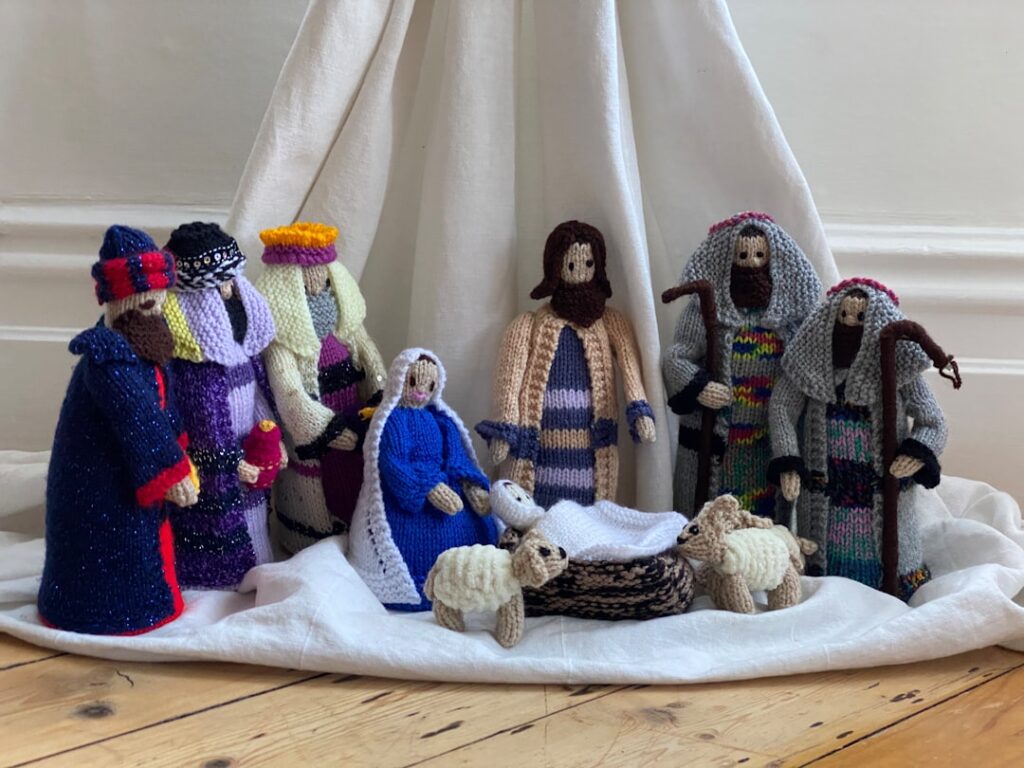 We’re halfway through November 2024, and already I’m excited for the new year. What’s so special about 2025?
We’re halfway through November 2024, and already I’m excited for the new year. What’s so special about 2025?
Let me paint a picture for you, and perhaps you’ll join me in the anticipation, wonder, and hope. This picture begins in Jerusalem, just after Pentecost, as Peter and John head to the temple for prayer. It’s mid-afternoon, and as they approach the temple gate called Beautiful, they encounter a man who has been crippled from birth.
This man has been carried to the temple day after day, sitting at the gate to beg from those passing by. As Peter and John come close, he turns his gaze towards them, expecting nothing more than a coin or two. He looks at them, hopeful for a few copper pieces—anything to make it through another day (Acts 3:1–10). But something unexpected happens. Peter doesn’t look away; he doesn’t toss a coin into the man’s lap and continue walking. Instead, he looks straight at the man, meets his eyes, and says, “Look at us.”
Peter draws the man’s attention, not to himself or to an empty gesture, but to what God is about to do through him. The man looks up, fully expecting silver or gold, and at that moment, Peter speaks words that have resonated through the centuries: “Silver and gold have I none, but what I do have I give to you. In the name of Jesus Christ of Nazareth, rise up and walk” (Acts 3:6, ESV).
And the man stands.
He doesn’t just stand; he leaps. He goes into the temple with Peter and John, walking, leaping, and praising God. Have you ever wondered what it takes to get someone leaping for joy? When was the last time you did it—if ever? The people, rightly so, are astonished; the crowds gather, and Peter seizes the moment—carpe diem—to proclaim Jesus: the one whom they crucified, who was raised from the dead, and who now brings healing and life.
Could this be the heart of a prophetic word for 2025? “Silver and gold have I none, but what I do have I give to you.” This was not just a moment for Peter and John; surely this is a call for the Church across the UK today. What would it look like if we, as the Church, lived like this in the year ahead? It’s certainly a challenge. What if we responded wholeheartedly to the world, not with what we don’t have, not with what’s easy or expected, but with audacious faith and a determined giving of what we do have? This may be the moment God is calling us to—a moment to ask: What do we actually have? What has God placed within our hands, within our hearts, that we can offer to a broken world?
It would be powerful if we seriously recognised and accepted what we have in Christ. The world around us is searching frantically for answers. It is desperate for meaning, aching for purpose, craving justice, yearning for peace. People are looking for “silver and gold” solutions, for the material things they believe will satisfy them, which they think will bring healing to their broken and fractured lives. Yet, as Peter and John showed that man, true transformation, true healing, true life cannot come from the world’s solutions—it’s just “stuff.” We don’t have all the resources the world thinks it needs—we don’t have endless funding, perfect answers, or all the structures and systems people might expect—but what we do have is far greater.
The Church has Jesus Christ. Let that ignite every switch in your heart, let it light up every shadowed area. This is not a cliché or a shallow answer; it’s the most profound reality. When we say we have Jesus, we are saying we have access to the very presence of God in a way that no other religion does. Welcomed, unfettered, and invited access. We have the resurrection power that brought Jesus from the grave. We also have the unbreakable promises of a God who is faithful, who never fails, who never leaves, who never forsakes.
Let it grip you—as Christians, we have the truth of the gospel that answers the deepest questions of the human heart: Who am I? Why am I here? What is the purpose of life? Where can I find hope? The Church has this spectacular treasure, this message, this person. We have Jesus, and that is more than enough.
And yet, to live out this prophetic encouragement, we need to go a step further. Peter and John didn’t just know what they had in Jesus; they were willing to give it. They did not keep it to themselves; they didn’t hesitate to offer it to this man who was in desperate need. And that’s where we are being led. The Church cannot be content anymore to hold Jesus close, to keep the good news tucked away for ourselves. We cannot be a people who look at the needs of the world and think, “I wish I could do something, but I just don’t have what it takes.” We do! We do! We do! Like Peter and John, we are called to give what we have—even when we’re not always aware that we “had it in us.” This is a time to live out of radical generosity, not only with our possessions but with our lives, with our very selves, in a way that mirrors the generosity of Jesus himself.
What might it look like for the Church in 2025 to give Jesus to the world? It would start with being a people of prayer. Notice that Peter and John were going to the temple to pray. They were living in constant communion and intimacy with God, relying on him, depending on him. Prayer is not just a ritual; it is the Church’s lifeline. In prayer, we open ourselves to God’s presence, we seek his wisdom, we listen for his voice. And he speaks. In prayer, we align our hearts with his, we are filled with his Spirit, we are empowered to do what he has called us to do. The Church cannot give what we have if we are not abiding in Christ through prayer. If we are not praying, there are no prayers to be answered. Prayer is our foundation, and along with worship, it’s a significant part of what we were made for.
Giving what we have also means being a people of boldness. You have to have a bit of what we in Yorkshire call “bottle.” Peter and John were proactive and didn’t hesitate to speak the name of Jesus. They were not embarrassed or afraid of the consequences. They knew that the power was not in their words, not in their strength, but in the name of Jesus. That’s where the miracles are! And they were unashamed to proclaim that name to a watching world, much like ours today. The Church today needs this same boldness. We are called to speak the name of Jesus, to declare his truth, to proclaim his gospel without fear, without compromise. This is not a time to hold back, to be tentative, to be ashamed. The world needs Jesus, and we have been given the privilege of making him known. Boldness comes as we are filled, and refilled, with the Spirit of God—it’s the work of the Spirit, it’s more than just being brave!
Living out this encouragement also means being a people of compassion. When Peter and John saw the man at the gate, they didn’t look away. They didn’t see him as an inconvenience or a distraction. They looked at him, they stopped, they gave him their attention, they treated him with dignity and compassion. They saw him as a person created in the image of God, an image-bearer, worthy of love and care. Worth stopping for. The Church must continue and increasingly be known for this kind of compassion, for this willingness to see people, to stop, to care, to reach out, never turning a blind eye to the suffering around us. It’s not in us to ignore the cries of those in need. How does that look? To give what we have is to be willing to enter into the pain of others, to offer them not just words but real, tangible love and support.
Giving what we have means being a people of hope. When Peter told the man to rise up and walk, he was speaking words of hope, words that pointed to the power of God to make all things new. The Church has this message of hope at the heart of everything it does.
No doubt about it—in a continent with new governments, leadership, and mountains of policies, we are the people—God’s people—who believe that Jesus is making all things new, that there is no situation too hopeless, no life too broken, no wound too deep for him to heal. In a world that often feels hopeless, the Church has been given the gift of hope. This is not wishful thinking or blind optimism; this is a hope grounded in the resurrection of Jesus, in the promise that he is coming again sooner than we might imagine, that he will make all things right. This is the hope we are called to share.
In 2025, we can be a Church that embraces this prophetic word, not defined by what we don’t have or by what the world thinks we lack. Let us not be distracted by the pursuit of silver and gold either, by the illusion that material wealth is what we need to make an impact; instead, let us be defined by what we do have. It’s a person. Let us be a people who give Jesus to the world—through prayer, through boldness, through compassion, through hope.
This is our calling. This is our privilege. This is our joy. The power is not in us; it is in the name of Jesus. It is in his love, his grace,






